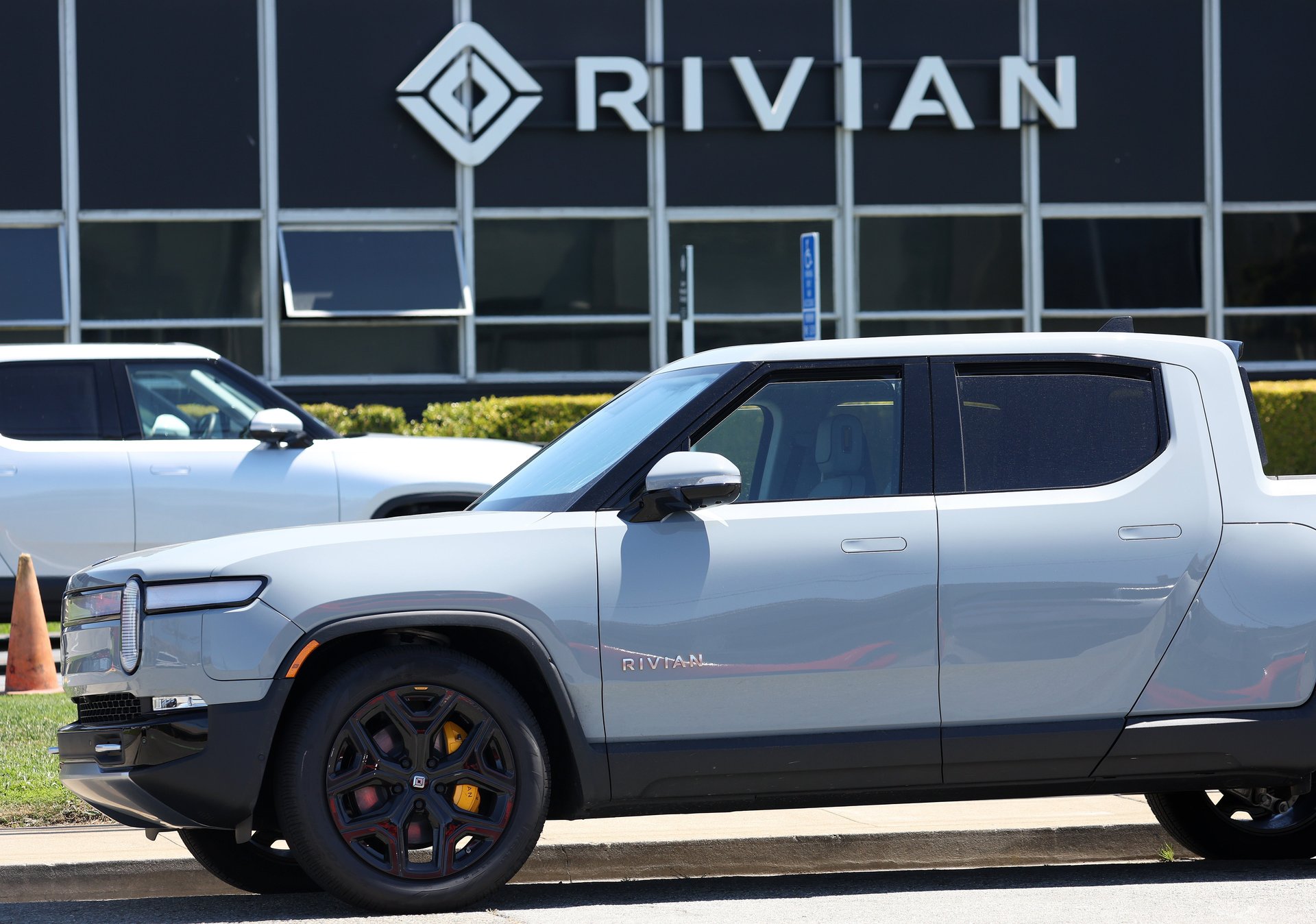Rivian's big Volkswagen deal gets Wall Street's applause
The EV startup's stock has gained roughly 40% since it secured up to $5 billion in funding from the German automaker

Just a few months ago, the market was worried about Rivian. The company has disclosed it lost $33,000 on every electric truck it sold, laid off hundreds of workers, and said it expects to take a $2.7 billion hit this year.
Suggested Reading
But a major deal with Volkswagen to invest up to $5 billion in the electric vehicle startup by 2026, beginning with an initial $1 billion cash injection, has changed that.
Related Content
“Relief. Giant relief,” Canaccord Genuity analyst George Gianarikas wrote in a Tuesday note to investors.
The deal is a “core game changer for Rivian” and changes “the Street’s view at a key time,” Wedbush Securities analyst Dan Ives wrote in a Wednesday note, calling it a “major win.”
The companies will create an equally-owned joint venture that they say will accelerate the development of software for both Rivian and Volkswagen. The partnership aims to build on Rivian’s current software and electrical architecture. Rivian will license existing intellectual property rights to the joint venture, which is expected to launch during the last three months of this year.
Each of the automakers are aiming to launch vehicles using Rivian’s technology during the second half of the decade. And perhaps most importantly, the companies say that developments from the new venture will help cut production costs.
Rivian said the initial $1 billion will be primarily used to fund its operations through the production of its new R2, a $45,000 two-row compact SUV with more than 300 miles of range that was announced in March, in its factory in Normal, Illinois. The company last month secured $827 million worth of incentives from Illinois to expand the Normal factory, which currently builds the R1S and R1T and is expected to start R2 production in 2026.
The funding will also help fund the company as it plans to launch a midsize platform in Georgia, where Rivian delayed plans for a $5 billion plant that was initially meant to start R2 production.
“We also believe Rivian is poised to emerge as a future EV leader — particularly as the R2 and R3 have the potential to propel the Rivian brand into the American public’s consciousness,” Gianarikas said, after dismissing concerns around “EV malaise.”
Although Canaccord’s price target for Rivian stock remains unchanged at $20 per share and a “Buy” rating, several others adjusted their targets. Wedbush raised its target from $15 per share to $20, while J.P. Morgan raised its target to $14 per share from $10, citing reduced uncertainty over funding in the short-term.
Rivian stock climbed as much as 50% in after-hours trading on Tuesday. As of early Wednesday morning, the stock was up about 40% in pre-market trading, to almost $17 per share.
On the other hand, Volkswagen stock was down more than 2% early Wednesday, due to concerns over the size of the investment and concerns about the automaker’s struggling software subsidiary Cariad.
“Cariad should and will disappear. The reality is it’s going to become irrelevant and die a natural death,” Jefferies analyst Philippe Houchois said, according to Reuters.
A Volkswagen spokesperson told the outlet that Cariad will continue developing its own projects, such as software for autonomous driving. The firm’s CEO, Peter Bosch, said in a LinkedIn post that the Rivian partnership will help accelerate Volkswagen’s software activities.
—Francisco Velasquez contributed to this article.